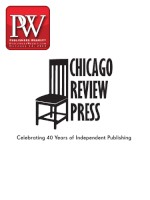In mid-September, James Patterson caught booksellers’ attention with something other than his latest bestseller, when he appeared on CBS This Morning and announced that he would give $1 million directly to independent bookstores in the form of grants. But he’s not the only author to launch a new initiative intended to help booksellers and drive more people into bricks-and-mortar stores. Sherman Alexie sent out a letter on September 1 to authors, calling on each to be “a superhero” for independents by participating in Indies First and working at his or her local bookstore on Small Business Saturday, the Saturday after Thanksgiving. Over the summer, Neil Gaiman and Stephen King offered two different bookselling models—signed preorders and windowing—intended to drive more sales through physical retailers. There are more signs that, with a little help from their author friends, this could be the time for indies to shine.
Richard Russo, who signed up to work at Longfellow Books in Portland, Maine, for Indies First and who also spearheaded an effort by a group of writers concerned about Amazon encouraging showrooming during the 2011 holiday season, said that he’s cautiously optimistic about the future of bookstores. “There’s still a lot of flux. But it now seems pretty clear that print books aren’t going anywhere. For authors, it may be a better strategy to support independent bookstores than to waste our [time] scolding the Amazons and Googles of the world,” Russo said.
King, who worked with Russo to get out the antishowrooming message, opted for a print-only release of the pulp crime novel Joyland in June. In an interview with Jeffrey Trachtenberg in the Wall Street Journal earlier this year, King said that he had no plans for a digital edition of Joyland. “Maybe at some point,” he noted, “but in the meantime, let people stir their sticks and go to an actual bookstore rather than a digital one.”
To give bricks-and-mortar stores the edge when The Ocean at the End of the Lane came out last June, Gaiman asked fans, in a blog post, to order specially presigned books from Porter Square Books in Cambridge, Mass. Although Gaiman also presigned books for Barnes & Noble, his efforts made a “huge impact” on Porter Square’s sales. According to general manager Dale Szczeblowski, the store sold close to 5,500 copies of Gaiman’s book at full price. Sales were also strong at indies that hosted Gaiman on tour. Nicola’s Books in Ann Arbor, Mich., sold more than 1,700 copies at its event, which contributed to higher summer sales there.
For Alexie, helping indies is about reaching the broadest number of stores possible with the help of his friends—other authors. Indies First grew out of his experience of being a bookseller for a day at Queen Anne Book Company in Seattle. When he had to cancel his keynote address during the store’s grand-opening weekend at the beginning of March, manager/owner Janis Segress teased him about owing her big-time. “Being Sherman,” she said, “he offered to show up for eight hours one Saturday and hand-sell books. I declined, and then quickly told him that four hours would be fine.” During those hours, sales rose just over 30% compared to a four-hour period on a typical Saturday. For Small Business Saturday, Alexie will be back at Queen Anne, along with Garth Stein, to hand-sell their favorite titles. According to ABA spokesman son Dan Cullen, about 120 authors have signed on to participate in Indies First.
Patterson, who will take part in Indies First at the Classic Bookshop in Palm Beach, Fla., is also one of the few writers to lay out a significant sum to support booksellers—and to promote literacy, a cause he’s been dedicated to for almost a decade. “I want our children to be surrounded by books, and not have to drive three towns over to even see one,” he wrote, in an e-mail interview with PW about the reason behind the bookseller grants. “Reading is becoming less and less of a priority in this country, and it’s time for that to change. I sincerely believe our whole way of life is at stake if we become a nation of nonreaders. It’s a pivotal moment.”
Since the announcement, Patterson’s received a few thousand notes about deserving stores, and in the next few weeks he expects to name at least some stores that will receive money. He also plans to hire at least one person to help him administer the grants, so he can disburse the funds in the next couple of months. “We’re taking this case by case, store by store. I’ll be reaching out to stores myself and asking them to identify one issue that they need help with—whether it’s a bonus for hardworking employees, funds for an expansion, a difficult rent hike, even fixing a hole in the roof—so they can breathe easier and focus on the mission of getting people re-excited about books and reading.”



 Volume 260
Issue 41
10/14/2013
Volume 260
Issue 41
10/14/2013





